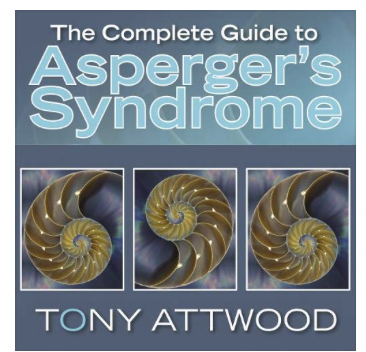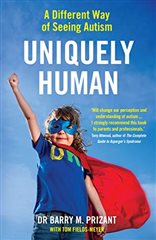
Autists are supposed to find expression and communication difficult, but lots of us manage to be tolerant, kind and sometimes amusing, but Grandin just seems to have an unlikable personality.
Yes, I partially watched a video of hers. Didn't take to her at all. She came across to me as arrogant (and boring).
After my diagnosis, I watched a video on YouTube by someone called Temple something-or-other. I found her very boring, arrogant and unlikable. I said to myself, "If that's what being autistic is, then I'm not autistic."
Since then, I've avoided any books or videos on the topic. She really spoiled it for me.
I think it most likely that you are referring to Temple Grandin, and it is generally a good idea to consider that "Once you have met one person with autism; you have met one person with autism" ~ rather than going along with the one type is all types state of affairs, and all that.
I just saw this by chance on Audible and decided to have a listen. Certain passages have resonated with me and forced me to revisit painful memories and re-live traumas past traumas through the lens of my diagnosis. It's still very raw, so I stopped reading.
It is really important to pace one's self and take time to recover from having relived traumatic episodes in one's past, with this being so whether we do it on our own (in our own way) or along with others involving good old "I know just what you mean!" or "Me too!" therapy.
Absolutely can relate to that. When it's 1 on 1 people comment that they don't see anything different about me. The more people (and the more animated the conversation) the harder it is for me to keep up.
People have been surprised to see me chatty when talking to them and then shut down once more people get involved in the conversation.
Oh and for those of us who have struggled with MH issues...so with Attwood when he says the answer is therapy "designed for aspies, by aspires, administered by aspies". Totally with him.
The other idea I loved was the statement about Aspergerese...he sees himself as a translator of NT language for ND and ND for NT...yeah, that's the answer to my mind. NOBODY should feel pressured to be what they are not, but we all need to work to understand others, we all also deserve to have others work to understand us. Then maybe we all get to socialise, make friends and be cool with it...
As a linguist, I relate. How do you get the Italians to get along with the French? - learn each others language and smile, but don't stop being Italian or French under any circumstances.
Yes, I found it more useful than most; partly because it is somewhat detached and scientific, while also managing to be kindly and supportive in tone. In contrast, the Temple Grandin book I read I thought rather over-enthusiastic and too 'American' for me - overly aspirational if you like. It also had lots of rather esoteric flights far beyond the scientific basics presented.
Yeah, I did. I recognise the things I went through, but the parts that affected me were the sudden in sights into how what I've always done is different from NTs, and I had no notion that WAS any different from anyone else. In particular, the fact that they do just intuit other people. I didn't know. I thought everyone did what is described in the passage below.
I think what I'm saying is that it wasn't the bits that I always knew were different about me (however painful) that upset me, but the bits where I had no idea that I was different until I read this. No wonder I've spent my life exhausted.
Yep! I related to that passage also. I'm a good friend one on one. In a group, I sit on the edge most often. I don't mind but it's hard to keep up
I had to stop reading after the first couple of paragraphs because I found myself revisiting painful memories of the trauma and sadness of a lifetime spent being misunderstood and mistreated. I'm not sure it's in my best interest to go back and face the loneliness and pain of the past.
As I've just mentioned to the previous poster, I watched a video on YouTube by Temple something-or-other. And because I found her very boring and unlikable, I said to myself, "If that's what being autistic is, then I'm not autistic." This book, however, seemed attractive because it was described as being more of a clinical study than a subjective account. I had to stop reading after the first couple of paragraphs, though, because I found myself revisiting painful memories of trauma and sadness from a lifetime of being misunderstood and mistreated.
I'm not sure it's in my best interest to go back and face the loneliness and pain of the past.
After my diagnosis, I watched a video on YouTube by someone called Temple something-or-other. I found her very boring, arrogant and unlikable. I said to myself, "If that's what being autistic is, then I'm not autistic."
Since then, I've avoided any books or videos on the topic. She really spoiled it for me. I just saw this by chance on Audible and decided to have a listen. Certain passages have resonated with me and forced me to revisit painful memories and re-live traumas past traumas through the lens of my diagnosis. It's still very raw, so I stopped reading.
I have it and struggled to read it. I think I found it difficult to read about my traits in what I felt was a manual which described my experiences in a clinical way (in some of the academic papers I've read I was drawn more to excepts from interviews than the methodology and the discussion in the paper itself). There was a part of me resistant to the diagnosis - and I think still is on occasion.
At the time I picked this up I preferred to read about other people's lived experience. Now I've come more to terms with my diagnosis I might try and give it another go. It's quite a way down the reading list though.
I am at the beginning of my journey to try and get an ASD assessment and I wondered whether the book that this post is about would be a worthwhile read whilst I wait? Additionally, has anyone read the following book and, if so, will it be of any use to an adult, as it possibly seems more focused on children with autism? Thanks in advance.
